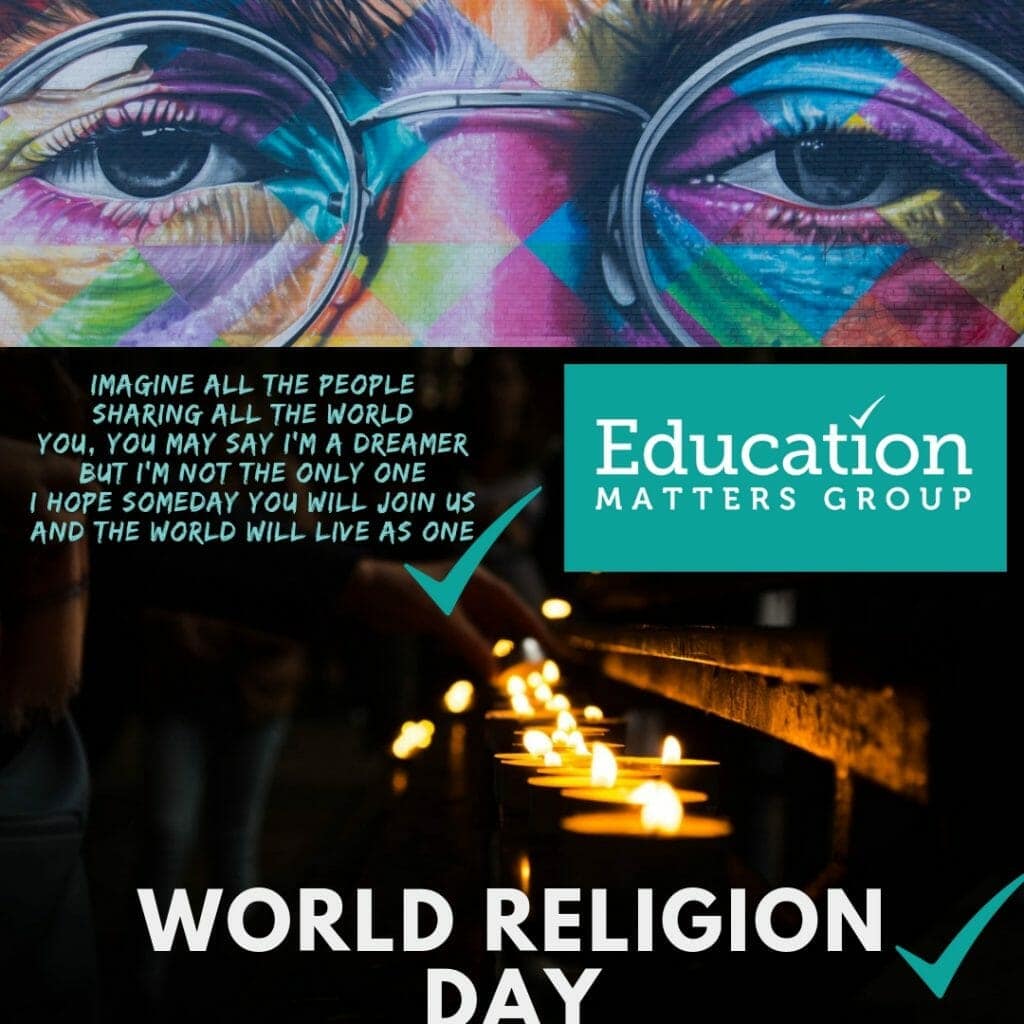In an increasingly globalized society festooned with myriad faiths and belief systems, the concept of a World Religion Day serves as a beacon, urging humanity towards unity and collective understanding. Embedded within the profound teachings of the Bahá’í Faith, this observance reverberates with significance. The very essence of World Religion Day aligns with the Bahá’í principles of the oneness of humanity and the harmony of science and religion. Through exploration of its necessity, relevance, and implications, we may discern why this day deserves not only recognition but earnest reflection.
At its core, the premise of World Religion Day is to foster interfaith dialogue and to cultivate understanding among diverse religious traditions. This initiative invites individuals to step away from the segregating walls of dogma, encouraging an exploration of spirituality that transcends cultural boundaries. Much like a grand tapestry woven with diverse threads, the mosaic of faith communities enriches the human experience. Each belief system contributes a distinct hue to the overarching design, creating a harmonious blend rather than a cacophony of discord.
Bahá’ís regard religion as a vital organic force in the evolution of civilization. It is through the promotion of religious understanding that societal progress can emerge. The teachings emphasize that all major religions stem from a common source, manifesting divine guidance appropriate to the needs of various cultures at different epochs. Hence, the observance of World Religion Day is not merely an annual event; rather, it embodies a continuous journey toward recognizing our shared humanity.
Moreover, World Religion Day serves as an antidote to the pervasive malaise of intolerance and prejudice that often festers in the absence of dialogue. It is not uncommon in today’s world to witness schisms and strife incited by religious differences. The Bahá’í teachings vehemently denounce such divisions, regarding them as barriers to unity. The observance of this day invites participants to engage in thoughtful conversations, fostering empathy and understanding. By providing a platform for voices from diverse faiths, we can dismantle the walls erected by ignorance and cultivate a spirit of love and acceptance.
Consider the metaphor of a vast garden, where each flower represents a unique faith. A single flower, though beautiful, cannot exhibit the diversity and vitality found in a thriving garden. This imagery encapsulates the essence of World Religion Day. Each religion offers insights reflective of its unique history and culture. As such, the day is an opportunity to celebrate these differences while cultivating a spirit of collaboration among faith communities. The flourishing of interfaith relationships resembles the harmonious coexistence of flowers in a garden, where each bloom complements and enhances the beauty of the others.
Furthermore, the significance of World Religion Day extends beyond mere dialogue; it encourages action. The Bahá’í teachings emphasize the imperative of service to humanity. Observers are called not only to acknowledge the validity of diverse beliefs but also to actively engage in the betterment of society. Such engagement might manifest in various forms: community service projects, interfaith gatherings, or educational initiatives aimed at dismantling misunderstandings. This call to action resonates strongly with the Bahá’í commitment to social justice and the upliftment of all peoples.
Engaging with the tenets of World Religion Day elucidates the reality that one’s faith, while deeply personal, also bears collective significance. The teachings advocate for the advancement of peace, thereby inviting all individuals to heed this clarion call. Moreover, as we navigate the complexities of contemporary issues—climate change, inequality, and civil unrest—the collective moral and ethical framework provided by diverse religious teachings can be a source of guidance. Through dialogue and collaboration, faith communities can coexist as agents of positive change, embracing their role in the global narrative.
In contemplating the relevance of World Religion Day, one must not overlook the potential it holds for education. The day can serve as an educational platform where individuals learn about the historical contexts, teachings, and practices of various religions. By fostering curiosity and promoting accessibility to religious knowledge, we can transcend misconceptions held by many. Education has the power to illuminate shadows of doubt and cultivate respect and understanding, thus leading to stronger interfaith relationships.
The observance also aligns seamlessly with global movements aimed at social cohesion and respect for human rights. At the heart of Bahá’í teachings lies a commitment to equality and justice, advocating that all individuals—regardless of faith, race, or background—are deserving of respect and dignity. As nations grapple with crisis and conflict, the principles espoused by World Religion Day serve as a reminder of the importance of collaborative coexistence, decrying any forms of discrimination and intolerance.
As we ponder the question, “Do we need a World Religion Day?” it becomes evident that it is not simply an aspirational ideal but rather a necessary component of our collective human experience. The teachings of the Bahá’í Faith invite us to immerse ourselves in understanding, respect, and collaboration within the vast diversity of world religions. In cultivating empathy and recognizing shared values, we lay the groundwork for a future where unity prevails over discord. The resounding answer to the question lies in the acknowledgment that, indeed, we need a World Religion Day—not only to celebrate the diversity of faith but also to affirm our shared humanity—a lighthouse guiding us through turbulent waters toward a brighter, more harmonious future.
